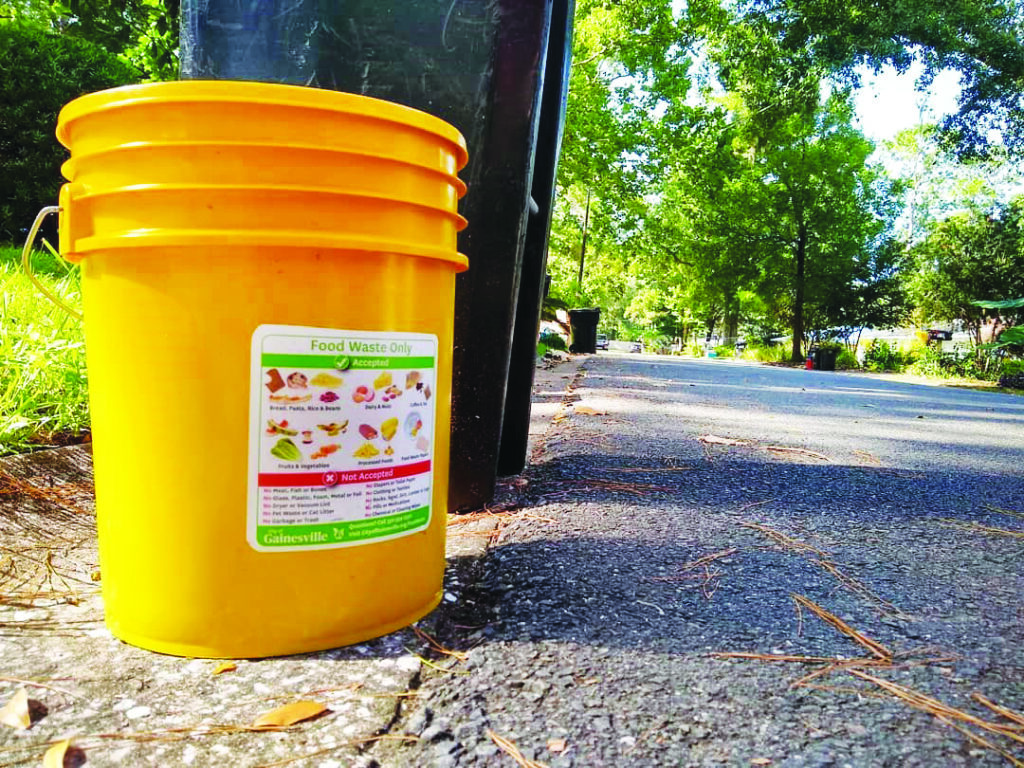By TOM STRICKLAND,
Recycling Coordinator,
City of Gainesville
The city of Gainesville is taking significant steps toward achieving its zero waste goals by expanding its residential food waste composting program.
The city aims to more than double the number of program participants by the end of June 2023, with a target of enrolling 200 to 230 new households in the current and expanded pilot areas.
Residents in this pilot program set out their yellow buckets full of banana peels, egg shells, moldy bread, coffee grounds, and other kitchen scraps once per week.
These valuable resources are then collected curbside by the dedicated workers at Beaten Path Compost, who transport the food waste to their composting facility in northeast Gainesville.
By carefully managing nitrogen, carbon, and microorganisms, the food waste undergoes a transformative process, resulting in high-quality compost.

The city has witnessed a remarkable reception from participants, debunking any concerns about potential odor issues sometimes associated with food waste.
Tom Strickland, Recycling Coordinator for the City of Gainesville, attributes the program’s success to the unwavering commitment demonstrated by residents in diverting their food waste.
Beaten Path Compost, led by Stephan Barron, provides food waste collection services for residential homes (both in and out of the pilot areas), as well as to restaurants and other food-generating businesses.
The finished compost product is sold in bulk to local gardeners and farmers, offering a natural and nutrient-rich solution to enhance soil quality.
The benefits are evident, as the compost improves soil structure, enhances water retention, promotes soil aeration, and supplies essential nutrients for optimal plant growth.
The food waste pilot program aligns perfectly with the city’s commitment to divert waste from landfills and mitigate climate change. When food waste ends up in a landfill, it rapidly decomposes and releases methane, a greenhouse gas which is 21 times more potent than carbon dioxide.
To date, the food waste pilot program has diverted over 58.50 tons of food waste from landfills, reducing greenhouse gas emissions by 36.96 MTCO2E (metric tons of carbon dioxide equivalent).●
For more information on Gaineville’s residential food waste composting program, visit gainesvillefl.us/FoodWaste.










